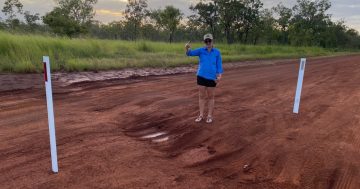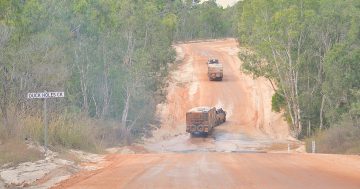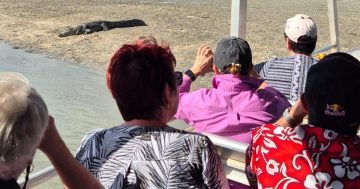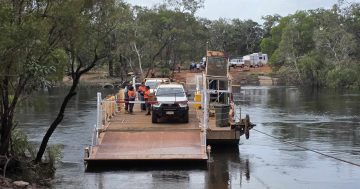
A shortage of staff is making matters worse for operators trying to keep up with the demand of what is sure to be a record-breaking season.
Tourists have been forced to find alternative camp sites.
The Weipa Camping Ground is booked out for the school holidays and that has resulted in a number of campers driving up the road to set up base at Lake Patricia and Lake McLeod.
Camping is prohibited there, although it technically is on Cook Shire Council land, meaning the Weipa Town Authority has no jurisdiction to police it.
Weipa Camping Ground owner Brooke Quartermaine said there had been a number of discussions over the years in regards to a dedicated overflow site to cater for the popular times.
“Nothing has happened and we are turning people away, which we hate doing,” she said.
“It’s not just the school holidays this year; we have solid bookings for the next couple of months.”
Ms Quartermaine said while it was positive for Cape York that tourists were flocking to the region, it could end up having a negative impact on overall tourism if visitors were unable to enjoy their experience.
“We need to make sure we can cater for everyone that comes here and not let them go home disappointed,” she said.
“If you turn up in Weipa and can’t get a camp site, can’t get on a tour or can’t go out on a fishing charter; you’re probably not going to recommend it to other people.”
Supermarkets are also trying desperately to keep up with demand, with Woolworths Weipa manager Katie Farrell encouraging locals to shop after 11am as the tourists were filling the store as soon as it opens. Stock has also been limited, although some of that can be put down to barge delays.
It’s not just Weipa that has been impacted.
There was a long queue for fuel at Bramwell Junction after the service station ran out of fuel last week, forcing an emergency delivery.
Punsand Bay’s restaurant has also been trying to keep up with the demand of hundreds of hungry guests, while the IBIS store in Bamaga has been heaving with visitors.
These problems are not just in the Cape, though, with operators throughout rural Queensland facing the same challenges.











